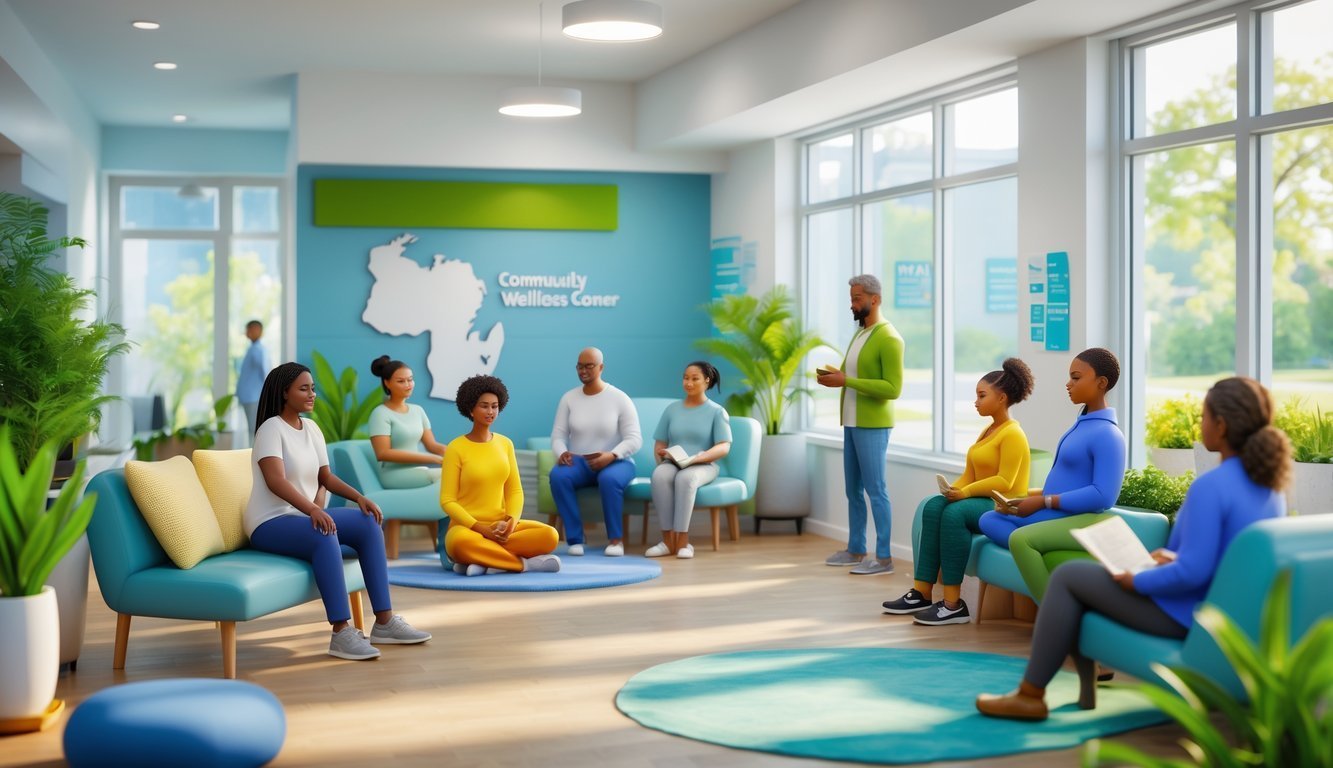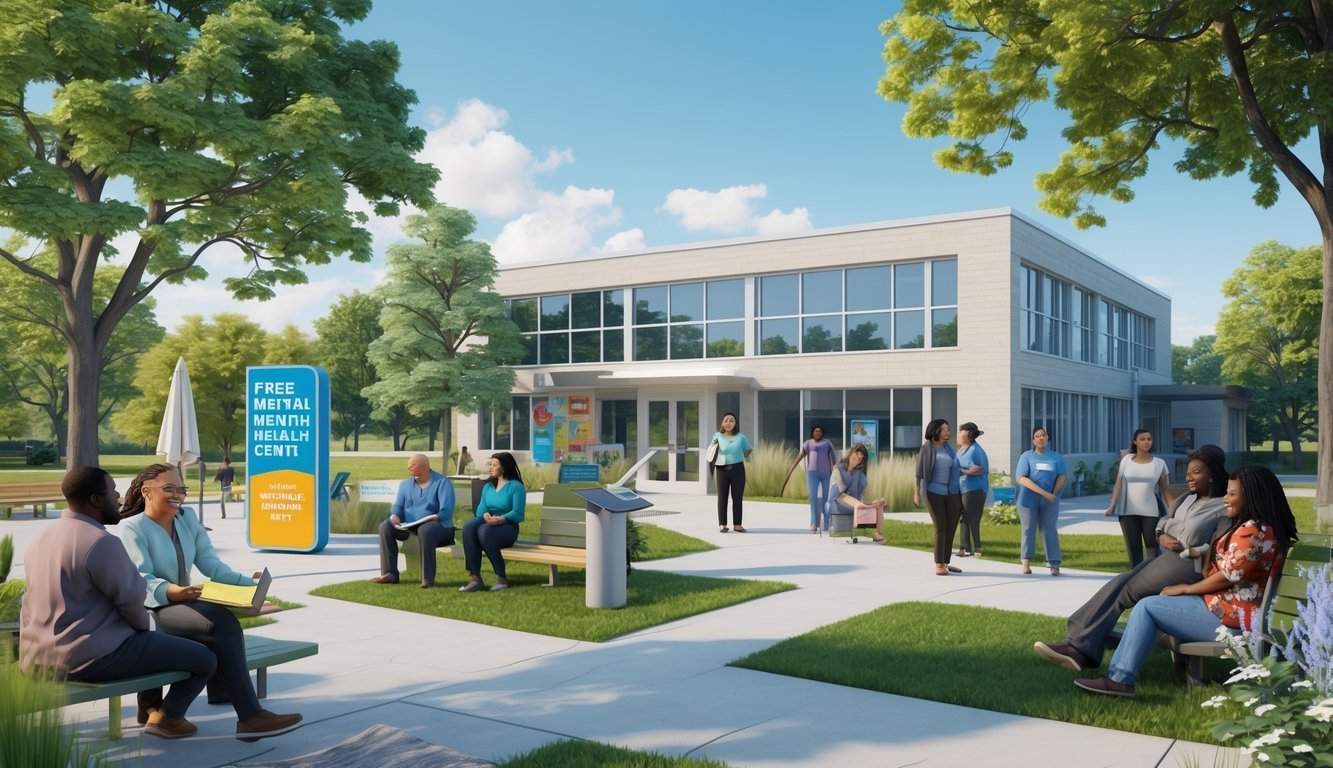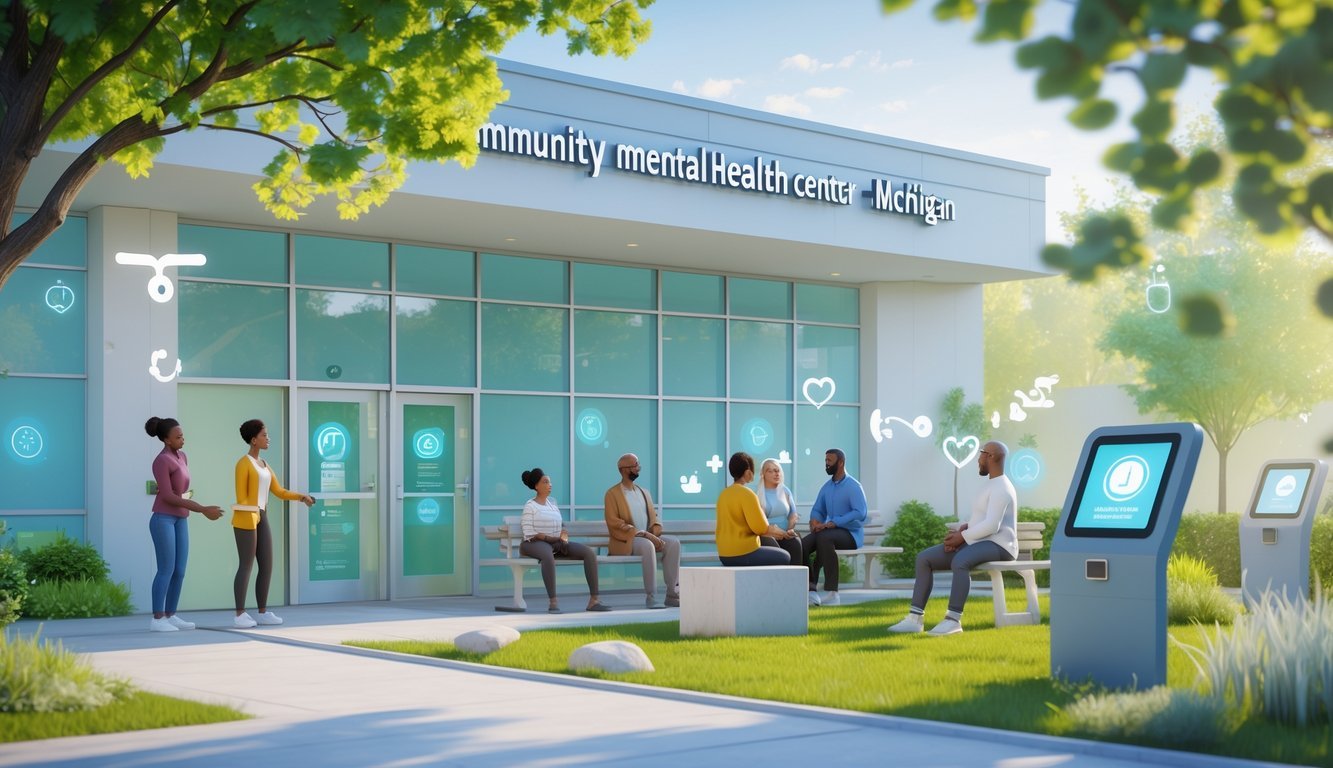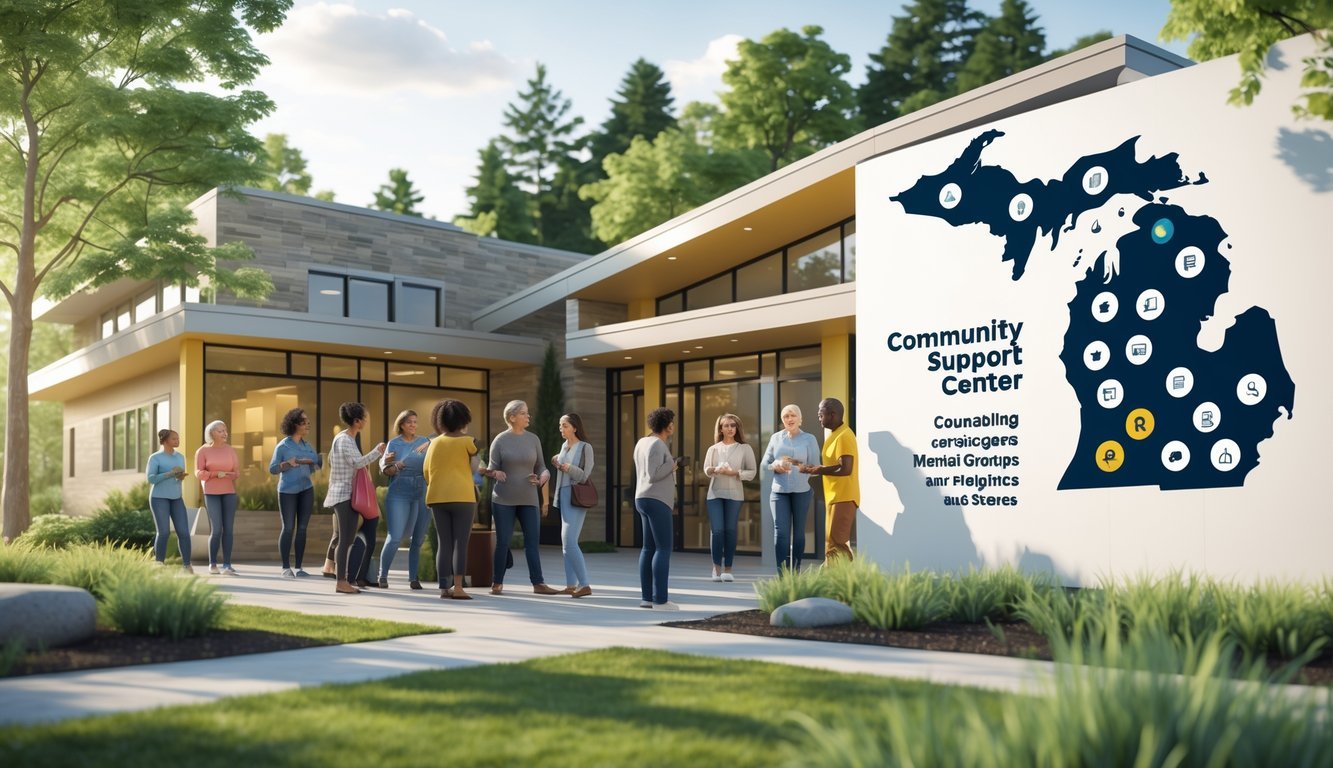PsychNewsDaily Publishers
100 Summit Drive
Burlington, MA, 01803
Telephone: (320) 349-2484
PsychNewsDaily Publishers
100 Summit Drive
Burlington, MA, 01803
Telephone: (320) 349-2484
Michigan offers various no-cost mental health resources, including community mental health centers, crisis hotlines, and peer support programs for individuals facing mental health challenges.

Trying to find affordable mental health care in Michigan can feel like a lot, especially if you’re already having a tough time. Luckily, Michigan has plenty of free mental health services through state programs, community groups, and healthcare systems that can help you out, even if money’s tight.
You can get free mental health services in Michigan through Medicaid, community mental health centers, crisis hotlines, and some university programs that offer counseling and psychiatric care at no cost. These services include everything from emergency support to ongoing therapy and medication help.
If you’re dealing with depression, anxiety, substance abuse, or other mental health struggles, knowing your options can make it a little easier to start getting better. This guide breaks down the programs out there, how to qualify, and where to find support in your area.

Michigan has a bunch of no-cost mental health resources like community centers, crisis support, peer programs, and services for people who are at higher risk. You won’t need insurance or payment to get help from these places.
Community Mental Health Services Programs (CMHSPs) are Michigan’s main network for free mental health care. You’ll find these centers in every county.
Anyone can use their services, no matter your ability to pay. CMHSPs offer counseling, therapy, medication management, and help with coordinating care.
Core Services Available:
These centers focus on adults with serious mental illness, kids with emotional struggles, and people with developmental disabilities. Most offer walk-in assessments during business hours.
You can call your county health department to find your local CMHSP. Many also run mobile crisis teams that come out for mental health emergencies.
The 988 Suicide and Crisis Lifeline gives immediate support if you’re in crisis. You can call or text 988 anytime for free, confidential help.
Michigan’s Crisis Response System:
| Service | Contact | Coverage |
|---|---|---|
| 988 Crisis Line | Call or text 988 | Statewide, 24/7 |
| MiCAL Crisis Line | 988 | Most counties |
| Veterans Crisis Line | 988, then press 1 | Veterans nationwide |
The Michigan Crisis and Access Line (MiCAL) takes most 988 calls from Michigan. You’ll talk to trained counselors who can de-escalate a crisis and connect you with local help.
You can use chat support through the 988 website in English. Texting is in English, but phone support works for Spanish and over 250 other languages with translators.
Almost all 988 calls get handled without needing emergency or police help. The main goal is to offer emotional support and connect you with the right care.
MiCAL runs the Michigan Peer Warmline, which is staffed by certified peer support specialists. You’ll talk to people who’ve been through mental health struggles themselves.
Peer support specialists give non-crisis emotional support and practical advice. They know what recovery feels like from both personal experience and training.
Warmline Benefits:
You’ll find peer support through different community groups across Michigan. Many CMHSPs also have peer specialists on their teams.
Peer support groups meet regularly in towns and cities around the state. These are usually free and welcome anyone facing similar challenges.
Michigan has mental health services for groups who might need extra support. First responders can use the Frontline Strong Together line through MiCAL for specialized crisis help.
Veterans get their own crisis support by calling 988 and pressing 1. This connects you with counselors who understand military mental health issues.
Priority Populations:
Many programs offer culturally specific care for racial and ethnic minorities. Community mental health centers often team up with local groups to reach people who might not get help otherwise.
Schools often provide free mental health services for students. These usually include counseling, crisis help, and support for families.

Getting free mental health care in Michigan means figuring out if you qualify, finding the right provider, and sometimes waiting for an opening. Most programs help people with low income, no insurance, or certain conditions.
Most free mental health programs in Michigan use income limits to decide who can get services. Usually, you need to earn less than 200% of the federal poverty level.
Common eligibility factors:
Community mental health centers help people with serious mental illness, developmental disabilities, or substance use disorders. You won’t need insurance to get care.
MSU’s Employee Assistance Program offers free counseling for faculty, staff, and their families. Students can use different programs through campus health centers.
If you qualify for Medicaid, it covers mental health services. Emergency help is available whether you can pay or not.
Start by calling 2-1-1 to get mental health resources in your area. This free hotline connects you with local programs and checks if you’re eligible.
Contact your county’s community mental health center first. They use a sliding fee scale based on income.
Search steps:
Michigan State University students can get counseling through campus programs. The University of Michigan offers mental health therapy through its psychological clinic.
Many providers have telehealth options, which is great if you live in a rural area.
Wait times for free mental health services can be anywhere from a few days to several months. Crisis services are usually available right away.
Call a few providers to see who can get you in sooner. Ask if they have a cancellation list for earlier appointments.
While waiting:
If you’re thinking about self-harm, go to an emergency room or call 988. They have to help you, even if you can’t pay.
Some places offer group therapy, and those spots might open up faster than one-on-one sessions.

Michigan has plenty of community mental health programs through state directories and local clinics. You’ll also find services for substance abuse and dual diagnosis around the state.
Michigan keeps several statewide systems to help you find services nearby. The state’s community mental health system links you to local providers through regional groups.
You can use online directories to see what’s available in your county. These sites list therapists, psychiatrists, and crisis support near you.
The Michigan Mental Health Code outlines diversion programs that help people get treatment instead of going through the justice system.
Key statewide resources:
Many counties have 24-hour crisis help. You can call your local agency for immediate support.
Big cities in Michigan run specialized mental health clinics and community programs. Detroit, Grand Rapids, Flint, and Ann Arbor all have strong networks of providers.
University towns add extra resources through campus health centers. Michigan State University offers crisis services 24/7 at (517) 355-8270. The University of Michigan Department of Psychiatry has both inpatient and outpatient care.
City-specific options often include:
Rural areas might have fewer choices, but they still have community mental health centers. These centers help coordinate care and can refer you to specialists if needed.
In Michigan, a lot of people deal with both mental health struggles and substance abuse. Community programs step in to help with these co-occurring disorders by using treatment plans that cover both issues at once.
There are programs out there that focus on addiction while also managing depression, anxiety, or other mental health conditions. These dual diagnosis programs really try to give people the full support they need.
Treatment options include:
People can join community support groups that meet all over Michigan. These groups, led by peers, offer steady encouragement for anyone recovering from substance abuse and mental health challenges.